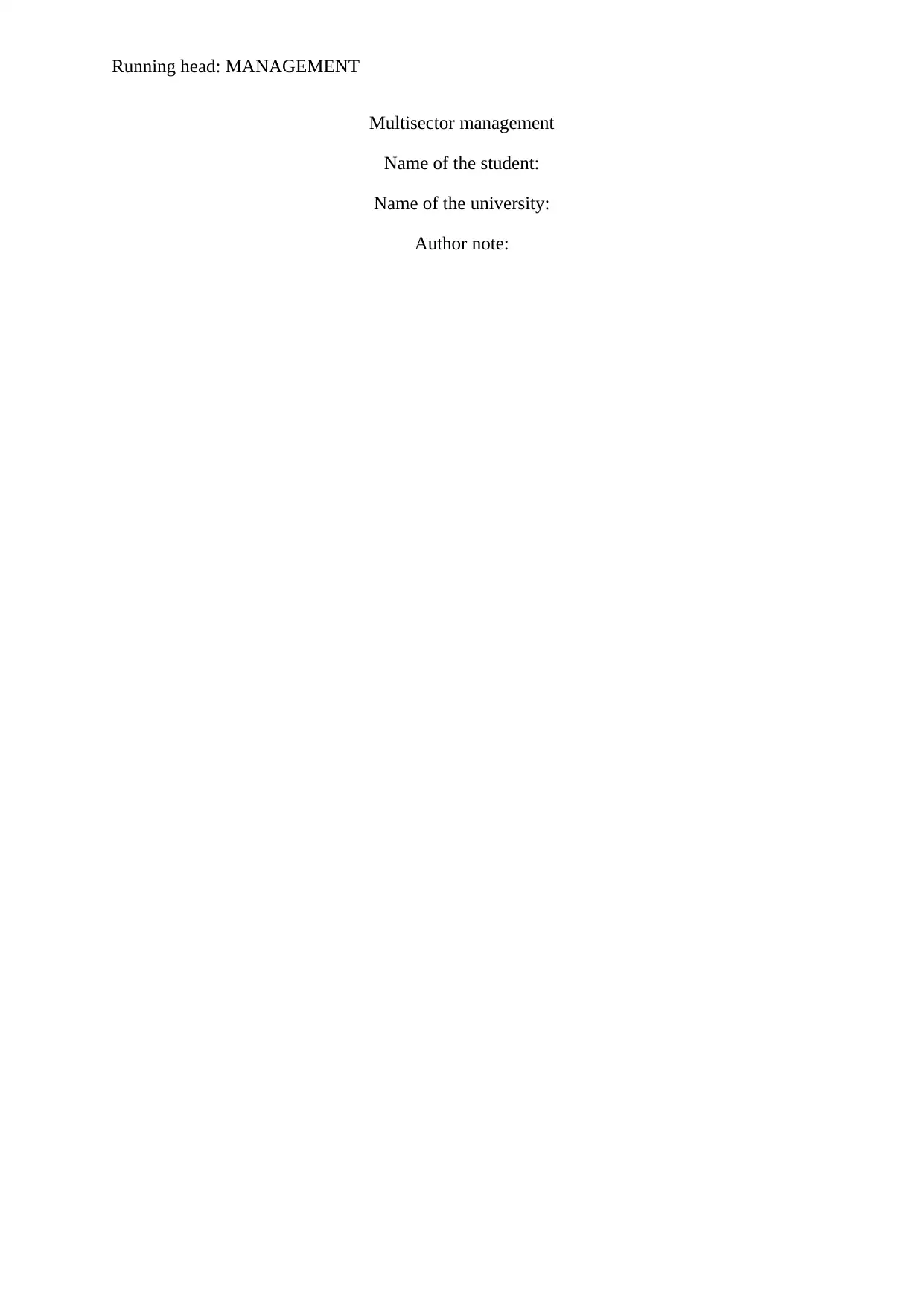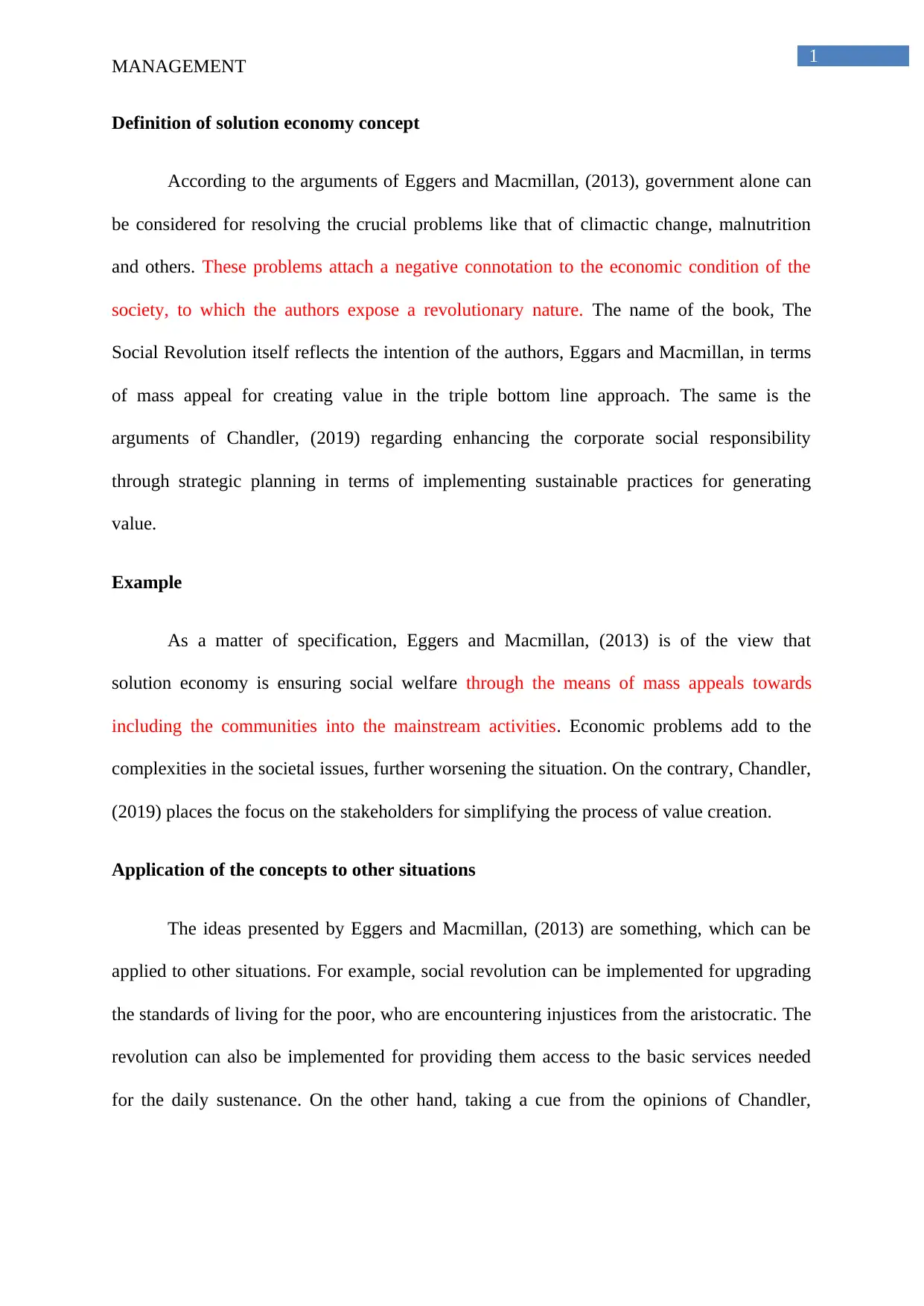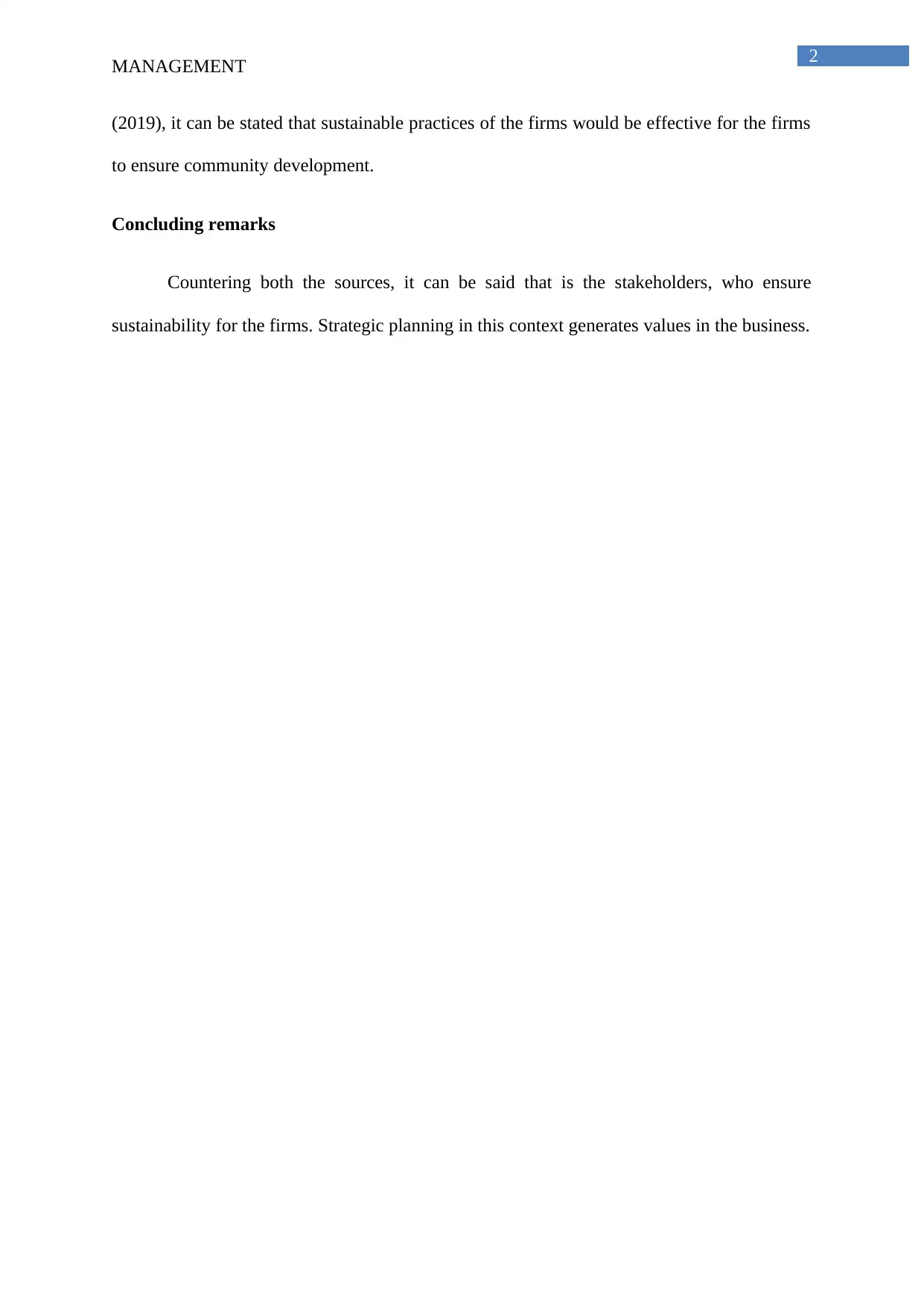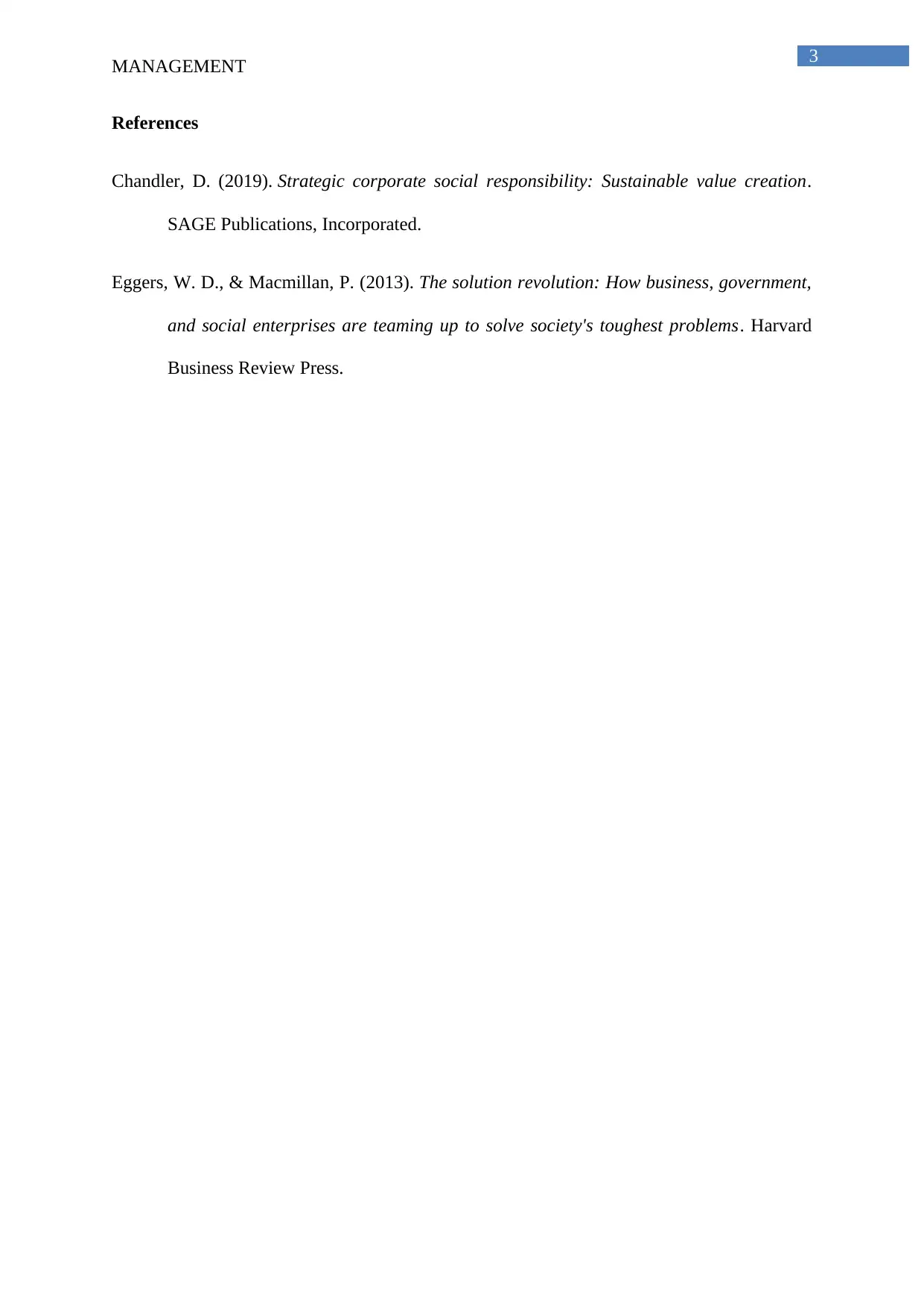Management Report: Solution Economy, CSR, and Sustainable Practices
VerifiedAdded on 2022/09/01
|4
|436
|22
Report
AI Summary
This report examines the concepts of the Solution Economy and Corporate Social Responsibility (CSR), drawing on the work of Eggers and Macmillan (2013) and Chandler (2019). It highlights how the Solution Economy, as described by Eggers and Macmillan, aims to address societal problems through mass appeal and community involvement, while CSR, as discussed by Chandler, emphasizes strategic planning and sustainable practices for stakeholder value creation. The report applies these concepts to real-world scenarios, such as improving the living standards of the underprivileged through social revolution and promoting community development through corporate sustainability initiatives. The conclusion underscores the significance of stakeholders in ensuring the long-term sustainability of businesses and the role of strategic planning in generating value within a business context. This report is designed to help students understand the critical connection between economic solutions and social responsibility.
1 out of 4











![[object Object]](/_next/static/media/star-bottom.7253800d.svg)